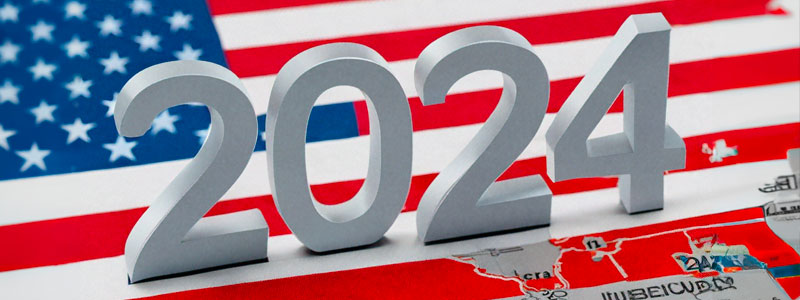
The U.S. presidential election is one of the most closely watched political events in the world, not only because of its direct impact on global politics, but also because of the repercussions it can have on financial markets. The relationship between the outcome of elections and markets is generally very complex and multifactorial, influenced by a combination of economic, political, and psychological factors.
1. The role of market expectations
One of the key elements that define the impact of the presidential election on financial markets is the role of expectations.
Investors tend to seek stability and predictability, and the election campaign can be a period of uncertainty that is reflected in market volatility. During the pre-election period, markets may be subject to fluctuations in response to polls, debates and political announcements. This is because different candidates may have significantly different approaches to economic, fiscal and trade policy. For example, candidates with a platform geared toward tax cuts and deregulation may be perceived as more favorable to equity markets, as such policies could stimulate economic growth and corporate profits.
Conversely, candidates with a platform of corporate tax increases or increased regulations may be seen as less favorable to markets, potentially leading to negative reactions among investors.
2. The immediate impact of the election results
The day after elections, markets often react markedly. This immediate reaction can vary widely depending on the surprise or conformity of the outcome with previous expectations.
To explain the concept further, if the favored candidate in the polls wins, markets may react positively or maintain stability, reflecting the continuity of expectations. However, if the outcome is unexpected, as happened in 2016 with the election of Donald Trump, there may be an initial shock reaction followed by a rapid readjustment as markets assimilate the new information and recalibrate their forecasts for the future.
3. Long term: economic policies and markets
In addition to the immediate reaction, it is important to consider the long-term effect of presidential elections on financial markets, which is strongly influenced by the policies that the new president and his administration decide to implement. Fiscal policy is one of the main tools through which a president can influence the economy and, consequently, the financial markets.
Tax cuts, investment incentives, and stimulus policies can boost economic growth and push stock markets higher. Another crucial factor is monetary policy, although this is technically under the control of the Federal Reserve (the central bank of the United States) and not directly of the president.
However, the president appoints members of the Federal Reserve Board, including the Fed Chairman and Vice Chairman, which can indirectly influence the country’s monetary policies.
Expansionary monetary policy, with low interest rates, tends to favor stock markets, while contractionary policy can have the opposite effect.
4. Geopolitical and trade factors
Presidential elections may also have significant implications for trade policies and international relations, factors that play a key role in determining the global economic climate. A president with a protectionist trade policy can lead to international tensions and trade wars, as happened during the Trump administration with China.
Such tensions can negatively affect financial markets, especially international markets. On the other hand, a president who favors free trade agreements and stable diplomatic relations can create a more favorable environment for global investment, reducing the risk of geopolitical instability and promoting international economic growth. U.S. presidential elections have a significant impact on financial markets, both in the short and long term.
The reaction of markets depends on a combination of investor expectations, actual election results, and policies that are implemented by the new government. The complexity of these factors makes it difficult to accurately predict how markets will react to a given election, but it is clear that the outcome of elections can have profound and lasting repercussions on the global economy.






